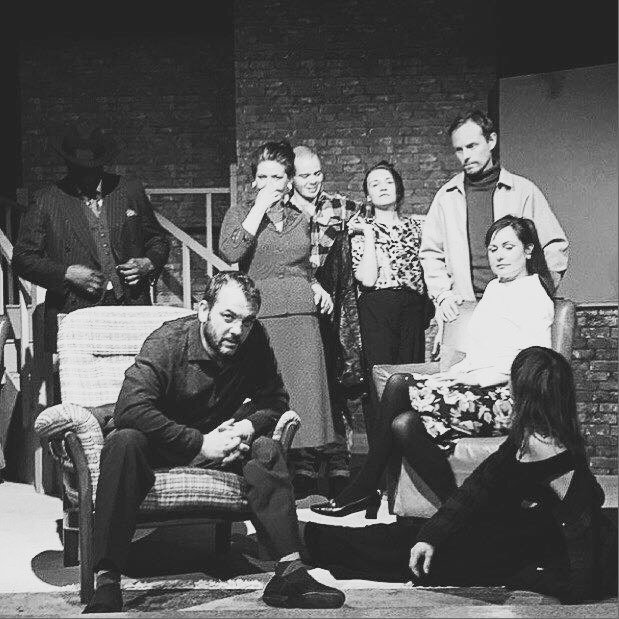the two year training
We are currently accepting applications for October 2026 entry
We are currently accepting applications for October 2026 entry
the structure
Our two-year, vocational acting training is full time but structured mainly over weekday evenings and at weekends thus enabling students to work and earn whilst they train. There is no upper age limit on those who audition. Students need to be 18 years old by the time they begin their training.
HOURS FOR TERMS 1-4
Monday, Tuesday, Wednesday & Thursday 6.30-10.00pm
Saturday 2.00-10.00pm
Hours for terms 5 & 6 are based entirely around rehearsal and performance schedules for the public season of plays and two industry showcases.
TERM DATES FOR 2025-26
Term one: 6th October - 13th December 2025
Term two: 12th January - 21st March 2026
Term three: 20th April - 27th June 2026
the cost
£2,500 per term (6 terms)
There are currently a number of small bursaries available for talented students in lower paid work. These can be applied for once an offer of a place has been made.
the course in detail
The two-year course is a robust and rigorous acting training covering classical and contemporary theatre and acting-based musical theatre. Our graduating students are automatically eligible to join Spotlight and apply for student/graduate membership of Equity.
acting
the first year
Alongside acting and character study, we work on classical and contemporary plays. Playwrights include Ibsen, Shaw, Wilde, Noel Coward, Chekhov, Shakespeare, Tennessee Williams, Arthur Miller, Harold Pinter and Brian Friel, amongst others.
All first year showings are internal and feedback comes in the form of formal ‘Crit’ sessions twice per term.
We will often cast against type in the earlier terms so that the actor is challenged to explore a fuller range of human experience.
In the third term we introduce work on modern scenes, beginning the process to find suitable casting material for showcases in the graduating terms.
the SECOND year
We begin work on a Shakespeare play and also study Restoration Comedy. Preparation continues on modern scenes, ready to present to the industry in the first showcase.
industry showcases
There are two opportunities to showcase work in the final year. The School invites agents and casting directors alongside other industry professionals to view graduate scenes/ speeches.
the public season
Spanning terms five and six is a season of plays and a musical revue that are open to the public and to the industry. These involve daytime rehearsals, whilst performances take place in the evenings.
Further preparation
The final two terms also include talks from Equity, Spotlight, industry professionals and working actors. There will also be practical sessions on self-taping. We hope to make it possible for all graduates to leave equipped with a showreel and as many tools as possible to thrive in the business.
voice training
The work on the voice will have three main components. Students will initially be given a description of their physical body and how the breath functions within this structure. Secondly, they will be taught a breathing technique with exercises to ensure that their voice can be used to its fullest capacity with a strong range, clear pitch and precise diction. Finally, this knowledge will be consolidated through the use of text, with a process introduced to explore how muscular responses can be affected by the emotional requirements of the material. Through following these techniques, students will feel an enormous creative release, finding the ability to fulfil their emotional choices without difficulty.
movement training
We aim to free the body of habitual tensions in order to allow the actor to transform physically and imaginatively into another’s existence. Whether this is a character within a play, a wild animal or a clown, the process is the same. The actor needs to embody both the subtle and the extreme and most of all to do this truthfully and particularly. Classes include fundamental movement, Laban dance, ensemble movement, animal study, mask and clowning. In period dance classes, students also study people from the past through their dances.
musical theatre
singing
Musical theatre studies include basic dance appropriate to the MT repertoire, but with a main focus on acting-based musical theatre. Singing technique is taught with an emphasis on how to link singing and acting. Even if you are neither a singer nor see yourself doing MT in your career, it is a valuable way for you to learn to connect to the emotional side of your acting. Classic genres will be covered, including Rogers and Hammerstein, Kander and Ebb and Stephen Sondheim, amongst others.
dance technique for musical theatre
Actors and singers have different technical approaches to physicality and breath from dancers. The breathing system is different, it is vital to keep the diaphragm free for vocal capacity, and we approach the technical side of dance with this in mind. addressing important techniques to apply when working with professional choreography.


